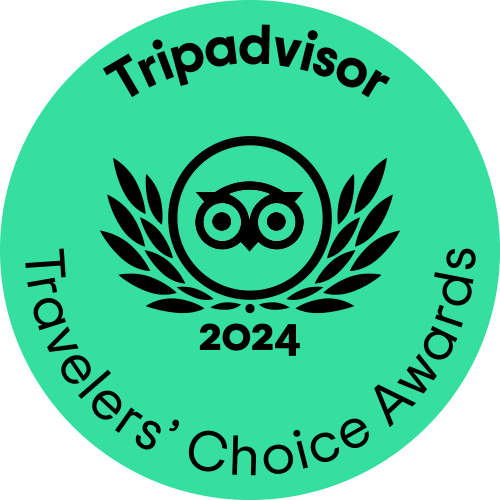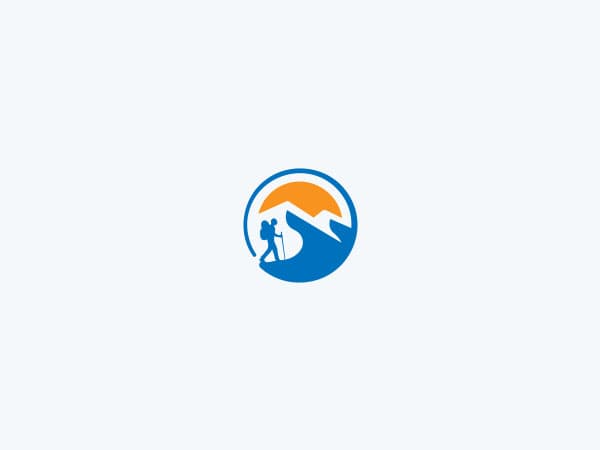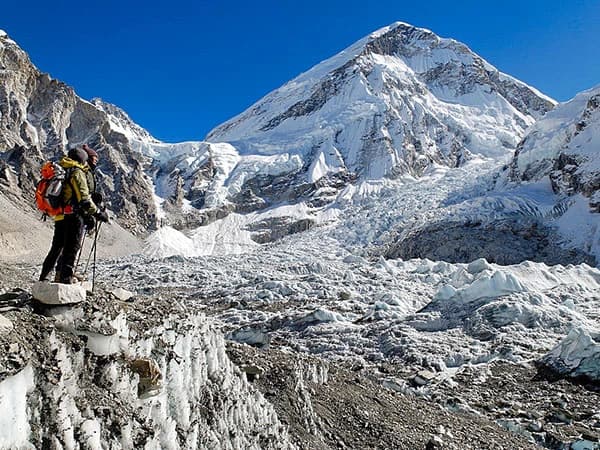Lobuche West Peak, standing at 6,145 meters, is one of Nepal’s more technical trekking peaks and is considered a serious ascent for mountaineers looking to test their skills in the Himalayas. Located in the Khumbu region near Everest, this climb combines technical challenges, stunning scenery, and the cultural richness of the Everest area.
Unlike its sister peak, Lobuche East, which is a common trekking peak, Lobuche West requires a high level of mountaineering expertise, making it ideal for those with previous climbing experience looking for a Himalayan adventure.
Lobuche West Peak is classified as an expedition peak due to its technical difficulty, with steeper terrain and complex ice and rock formations compared to other trekking peaks. The climb involves navigating glaciers, icy slopes, and challenging ridges, making it a significant step up from trekking peaks like Island Peak or Lobuche East. Most climbers complete the climb as an add-on to the Everest Base Camp trek, providing time for acclimatization along the way.
The climb generally begins with a flight to Lukla, followed by a trek through Sherpa villages like Namche Bazaar, Tengboche, and Dingboche. After reaching Lobuche Base Camp (4,950m), climbers proceed to Lobuche High Camp (5,400m), where they’ll undergo final preparations for the summit push. The summit attempt starts early in the morning, often around midnight, with climbers tackling a steep, icy ascent requiring the use of crampons, ice axes, and ropes to navigate complex terrain.
Reaching the summit of Lobuche West rewards climbers with panoramic views of some of the world’s highest mountains, including Everest, Lhotse, Nuptse, Pumori, and Ama Dablam. The vantage point provides an awe-inspiring perspective over the Khumbu region, making the challenging ascent worthwhile. Sunrise and sunset from the high ridges offer spectacular photo opportunities, with the Himalayan giants painted in warm, golden hues.
Lobuche West Peak is more technically demanding than many other trekking peaks in Nepal. Climbers must be skilled in mountaineering techniques, including using ice axes, crampons, fixed ropes, and managing glaciated terrain. The route includes a steep headwall, challenging snow and ice slopes, and some rock sections, which demand good fitness and mountaineering experience. This peak is ideal for experienced climbers seeking a more challenging ascent.
The approach to Lobuche West passes through traditional Sherpa villages, providing climbers with a glimpse of the local culture, hospitality, and way of life. Trekkers can visit the Tengboche Monastery, one of the spiritual hubs of the Khumbu region, and gain insight into Sherpa traditions, Buddhist practices, and the mountain lifestyle. Namche Bazaar, the gateway to Everest, offers opportunities to interact with locals, explore the Sherpa culture, and enjoy local cuisine.
The itinerary for Lobuche West includes ample time for acclimatization, especially in high-altitude villages like Dingboche and Lobuche. These stops are essential to help climbers adapt to the altitude, reducing the risk of altitude sickness and increasing their chances of successfully reaching the summit.
The acclimatization process also includes scenic hikes to nearby viewpoints, which offer climbers a chance to take in the beautiful Khumbu landscapes and prepare mentally for the climb ahead.
Many climbers add a visit to Everest Base Camp to their Lobuche West expedition. This allows climbers to experience the excitement of Everest expeditions, meet other climbers, and witness the mountaineering culture of one of the world’s most iconic destinations. The addition of Everest Base Camp adds a legendary element to the trip and provides valuable acclimatization before the summit attempt.
The best seasons for Lobuche West climbing are spring (March to May) and autumn (September to November). These periods offer stable weather, clear skies, and manageable temperatures, making the climb safer and more enjoyable. The visibility during these months is excellent, allowing for unobstructed views of the surrounding peaks.
Due to its technical demands, Lobuche West requires a high level of fitness and mountaineering skills. Prior experience in using mountaineering equipment, as well as aerobic, strength, and endurance training, is essential. This peak is ideal for climbers looking to push their limits in a high-altitude setting with challenging terrain.
Lobuche West Peak Climbing is a challenging and rewarding adventure that offers technical climbing, stunning scenery, and rich cultural experiences. The technical difficulty and breathtaking views make it an unforgettable journey, perfect for seasoned climbers ready to tackle a true Himalayan expedition
Highlights
- views of Mount Everest, Lhotse, Nuptse, Ama Dablam, and other towering peaks in the Khumbu region.
- Experience the grandeur of the Himalayan landscapes, including glaciers, alpine meadows, and rugged terrain.
- The final ascent involves navigating steep and technical routes, offering a sense of accomplishment and thrill.
- Interact with the local Sherpa community, known for its rich culture and mountaineering expertise.
- Visit monasteries, and traditional villages, and experience local hospitality.
- Spend time in Namche Bazaar, the vibrant trading hub of the Khumbu region, offering insights into the local way of life.
- providing a chance to visit iconic locations like Tengboche Monastery and Kala Patthar.
- Excellent acclimatization opportunities, with scenic trails, diverse flora and fauna
- chance to explore the Sagarmatha National Park.
- Experience the remoteness and tranquility of the high Himalayas, far from the hustle and bustle of daily life.
- Enjoy camping in pristine locations at Base Camp and High Camp, surrounded by towering peaks and serene landscapes.
- Climbing Lobuche West Peak is a test of physical endurance, mental resilience, and technical climbing skills.
- Successfully summiting the peak is a significant personal achievement.
- Bond with fellow climbers and support staff, sharing the challenges and triumphs of the expedition.
- Witness the stunning beauty of glaciers and icefalls, particularly the Khumbu Glacier, one of the largest in the region.
- Traverse through diverse alpine scenery, including rhododendron forests, glacial moraines, and high-altitude deserts.



